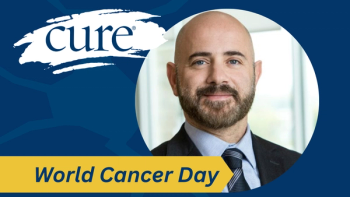
With Glioblastoma, What You See Isn't Always What You Get
This cancer living inside of me has been life altering. On the outside you may think that things are not so bad. What you are not seeing is that my cancer is incurable.
What you see is not necessarily what is real. What do I mean by that? This cancer living inside of me has been life altering. On the outside you may think that things are not so bad. For example, my hair has grown back, I am able to work, I go to church and I can take amazing vacations.
What you are not seeing is that my cancer is incurable. I am not in remission nor will I ever be in remission. I have learned to manage the cancer symptoms with medicine, limited work hours and daily rest periods. My vacations are no longer the same because I do not have the stamina to put in a full day of fun. My senses are heightened and my eyes are sensitive to light. The smells that I used to enjoy have become offensive to me, and my hearing has become affected to the point where I cannot tolerate loud noises.
These are things that I still enjoy: I love pool time and movies. I still love to travel and experience new things, but my favorite two things are spending time with friends and my coffee-time with Jesus. I start everyday reading his word while drinking my coffee.
All cancers are not the same.
To give you a better idea of the severity of this cancer, glioblastoma is known to be the most lethal and untreatable human tumor, which unfortunately means I will NEVER hear the word “remission” with regard to my case.
This cancer was recently in the news.
When you hear that someone has cancer you may expect to see someone who is weak, someone who has experienced extreme weight loss or someone who has lost their hair due to treatment. In the beginning, I had all those things, but I am past all that: my weight is healthy, my hair has regrown and I have more stamina, but I am not back to where I was before being afflicted with this cancer. When you think of a person with cancer, you may picture someone who is on their deathbed, not someone who looks good, is working and functioning like someone who does not have the disease. But unless you walk in my shoes, you cannot know the real me.
The real me that you don’t see is one who tires easily. I used to go about 100 miles an hour in everything I did. That was the old me before cancer. Now I still go about 75 miles an hour, but I tire easily and I have to rest. You see me at meetings, at church, out at lunch, etc., but you don’t see the real me at home. I have to go to bed early and have rest-time during the day.
John 11:40 — “Then Jesus said, “Did I not tell you that if you believe, you will see the glory of God?”
I may not follow the stereotypes of someone with cancer, but it is as real for me as it is for others. I am blessed to be able to say, “I am alive by the glory of God.”




